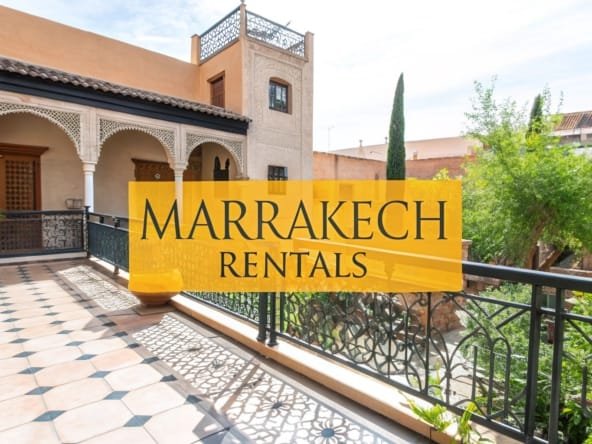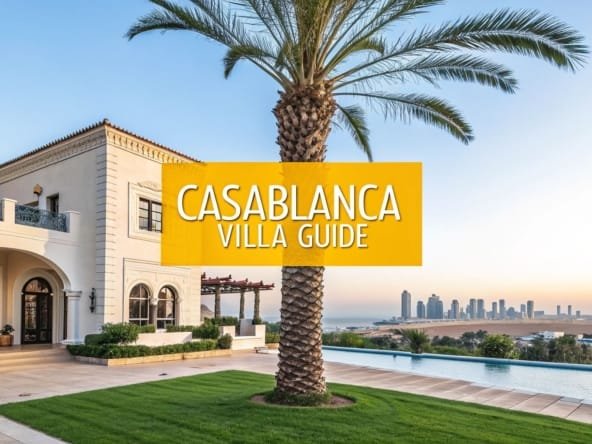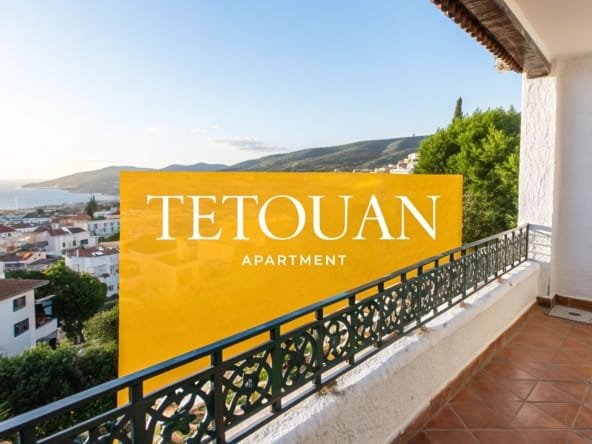Understanding Casablanca's Office Rental Landscape
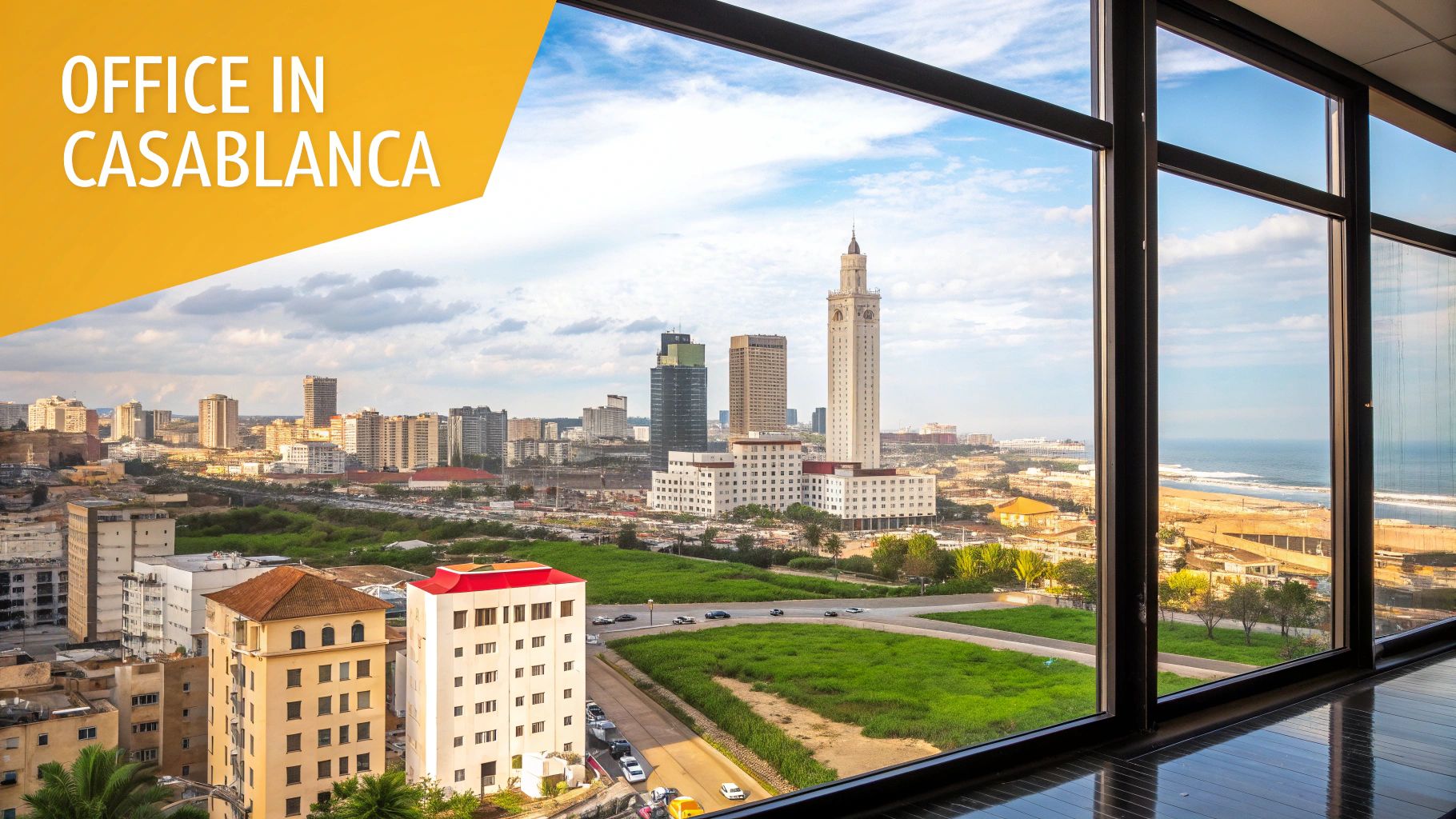
Let's be real—finding the right office in Casablanca can feel like a tricky puzzle. It's a busy, competitive market where great deals and overpriced traps can look almost identical. But this energy is also its greatest asset. While other markets fluctuate, Casablanca's office rental scene has remained remarkably steady. By 2022, the city had over two million square meters of quality office space, and new developments in places like Casa Anfa keep adding to the supply. This growth helps keep rents from skyrocketing, although you'll still face stiff competition in the most desirable areas. You can explore more on Casablanca's office market growth to get a fuller picture.
Decoding Local Real Estate Terms
Before you even start searching for a bureau a louer a casablanca, you need to get familiar with the local lingo. One term you'll see everywhere is ‘standing’. This isn't just fluff; it's a key classification. A 'haut standing' (high standing) building means you're getting premium finishes, modern elevators, top-notch security, and a prestigious address. On the other hand, 'moyen standing' (medium standing) is more about function over flair, offering solid quality that's perfect for many startups and small businesses.
Another term to watch for is ‘charges communes’, which are the common area maintenance (CAM) fees. These costs are billed on top of your base rent and cover things like lobby cleaning, security staff, and elevator maintenance. Make sure you get a clear breakdown of these fees, as they can easily add 10-15% to your monthly rent and catch you by surprise.
Choosing Your Business's Home Turf
Now, let's talk about where you should set up shop. In Casablanca, your address is a big part of your business identity. The district you choose affects your brand image, your clients' access, and your team's daily commute. The city's economic development has established several distinct business hubs, each with its own vibe. It's worth understanding why Casablanca is Morocco's hottest real estate hub to see the bigger picture.
Every business district has its unique flavor. A financial firm might feel right at home in one area, while a creative agency would thrive in another. To give you a clearer idea, here is a breakdown of the major business districts in our "Casablanca Business Districts Comparison" table.
| District | Business Type | Rent Range (MAD/m²) | Key Features |
|---|---|---|---|
| Sidi Maârouf | Tech, Call Centers, Multinationals | 100 – 150 | Casablanca's primary business district, modern infrastructure, near the airport, but heavy traffic. |
| Anfa / Anfa Supérieur | Finance, Legal, Luxury Brands | 150 – 250+ | Prestigious, high-end buildings, excellent amenities, home to embassies and consulates. |
| Maarif | Retail HQs, SMEs, Consultancies | 120 – 180 | Central, vibrant, great access to shops and services, classic urban feel. |
| Centre Ville | Government, Banking, Traditional Firms | 90 – 140 | Historic business heart, excellent public transport links, a mix of old and new buildings. |
Picking a district is about more than just finding the best rental rate; it's about defining your business. A tech startup would fit perfectly into the modern, innovative environment of Sidi Maârouf. A prestigious law firm needing to project an image of success would naturally choose Anfa. Maarif is a great all-rounder, offering a dynamic commercial setting ideal for businesses that feed on city life.
The key is to look past the price per square meter and envision how the district’s character aligns with your company’s culture and goals. Think about your team, your clients, and the statement you want your address to make.
Defining Your Office Requirements And Budget Reality
It’s easy to get swept up in the dream. You see a chic office in Anfa, imagine your logo on the frosted glass door, and start mentally arranging the furniture. But hold on. Before you fall for the perfect view, let's get real about what your business actually needs to function. A tech startup operates very differently from a consulting firm, and that difference is everything when it comes to your search for a bureau a louer a casablanca.
Beyond Square Meters: What Do You Really Need?
The old rule of thumb is 10-15 square meters per employee, but that’s just a starting point. The real question is how your team will use the space. For instance, we saw a Casablanca software company that prioritized a massive open-plan area to encourage collaboration, keeping only two small pods for private calls. In stark contrast, a local law firm required five individual offices for confidential meetings and an imposing reception area to convey authority and trust.
This kind of thinking helps you move past simple measurements and focus on your daily workflow. Before you even look at a listing, get your team together and map out your ideal day. Consider these key points:
- What’s the right mix of private offices and open-plan desks for your team's productivity?
- Is a client-facing reception area a "nice-to-have" or an absolute must for your brand?
- Do you need specialty rooms, like a secure server room, a large conference room for board meetings, or a proper kitchen?
- How much room will you need for new hires? Planning for 20% headcount growth over two years is a smart and safe buffer.
The Full Financial Picture: Budgeting for Your "Bureau a Louer a Casablanca"
Once you have a clear picture of your needs, it's time to align them with your budget. The monthly rent is just the tip of the iceberg. Your location is the single biggest variable. A space in the high-end Casablanca Marina carries a much different price tag than a functional office in the business-focused Maarif district.
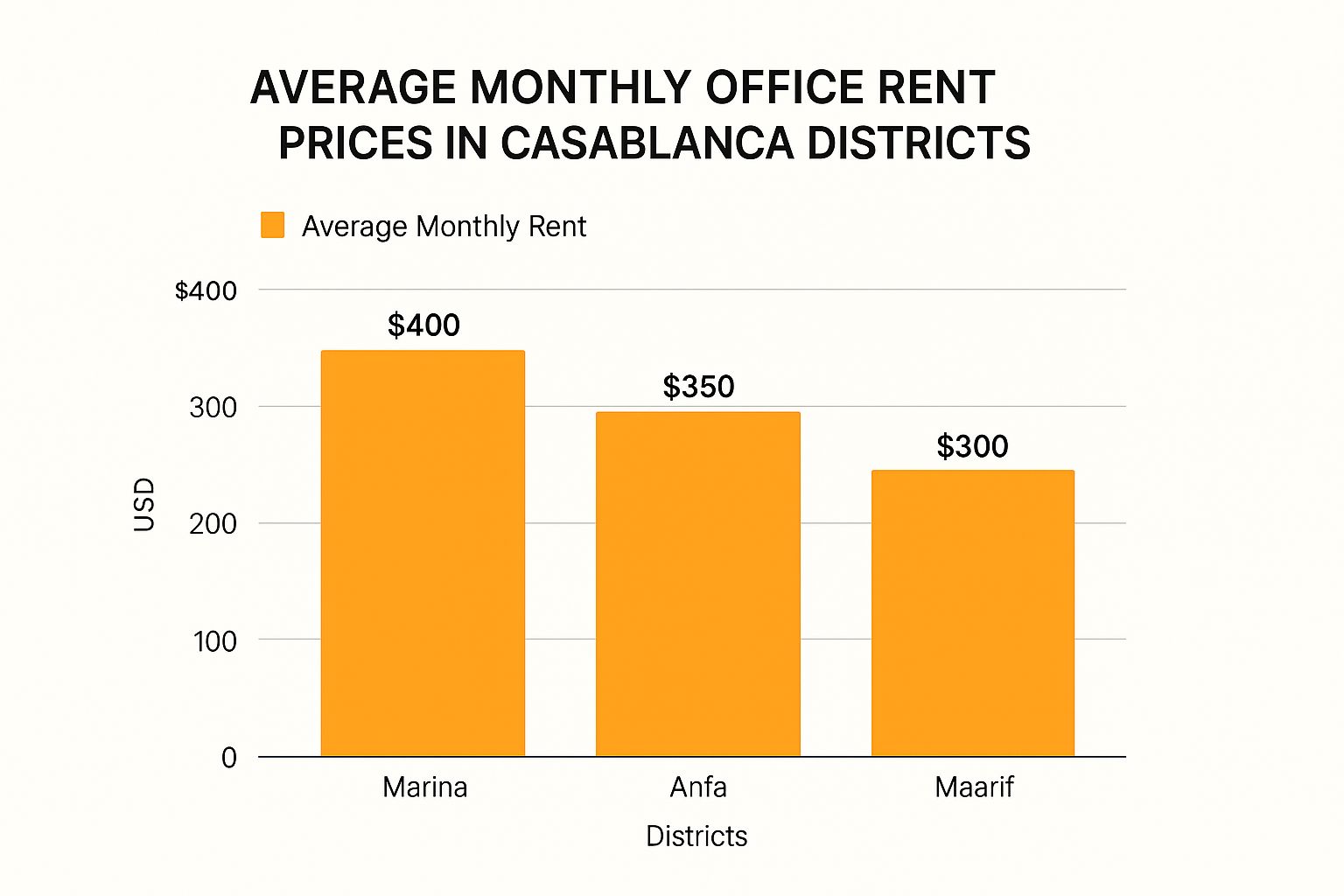
The data clearly shows that the premium you pay for a prestigious address can dramatically affect the size and type of office you can afford. But the sticker price on the rental listing is just the start. Many businesses get blindsided by the other costs that pop up. To help you see the whole picture, we’ve put together a budget planner.
| Cost Category | Typical Range | Frequency | Notes |
|---|---|---|---|
| Monthly Rent | Varies by location | Monthly | This is your base cost. Expect significant price differences between districts like Marina, Anfa, and Maarif. |
| Security Deposit | 2-3 months' rent | One-time (refundable) | Held by the landlord and returned at the end of the lease, minus any repair costs for damages. |
| Agency Fees | 1 month's rent + VAT | One-time | Paid to the real estate agent who helped you secure the property. |
| Fit-Out & Furnishing | Highly variable | One-time | This includes painting, installing partitions, buying desks, chairs, and other necessary equipment. |
| Urban Tax ('Taxe d'édilité') | Varies | Annually | An official city tax. It’s crucial to clarify with the landlord whether this is your responsibility. |
| Utilities & Connectivity | Varies | Monthly | Covers your electricity, water, and high-speed internet bills. |
Factoring these items in from the start prevents nasty surprises down the line and helps you build a truly realistic budget. That "great deal" on rent isn't so great if it comes with thousands of dirhams in unexpected fit-out costs.
Traditional Lease vs. Flexible Workspace
Finally, let’s think about the type of commitment you’re ready to make. A traditional 3-6-9 year lease offers stability and the freedom to customize your space exactly how you want it. This is often the best path for an established company with a predictable growth forecast.
However, if you're a startup with an uncertain future or an international firm just testing the Moroccan market, a long-term lease can feel like a financial straitjacket. This is where flexible workspaces shine. They provide all-inclusive pricing and shorter commitments, giving you the agility to adapt that a fixed lease simply can't offer. The right choice depends entirely on your business’s current stage and future goals.
Navigating Legal Requirements Without The Headaches
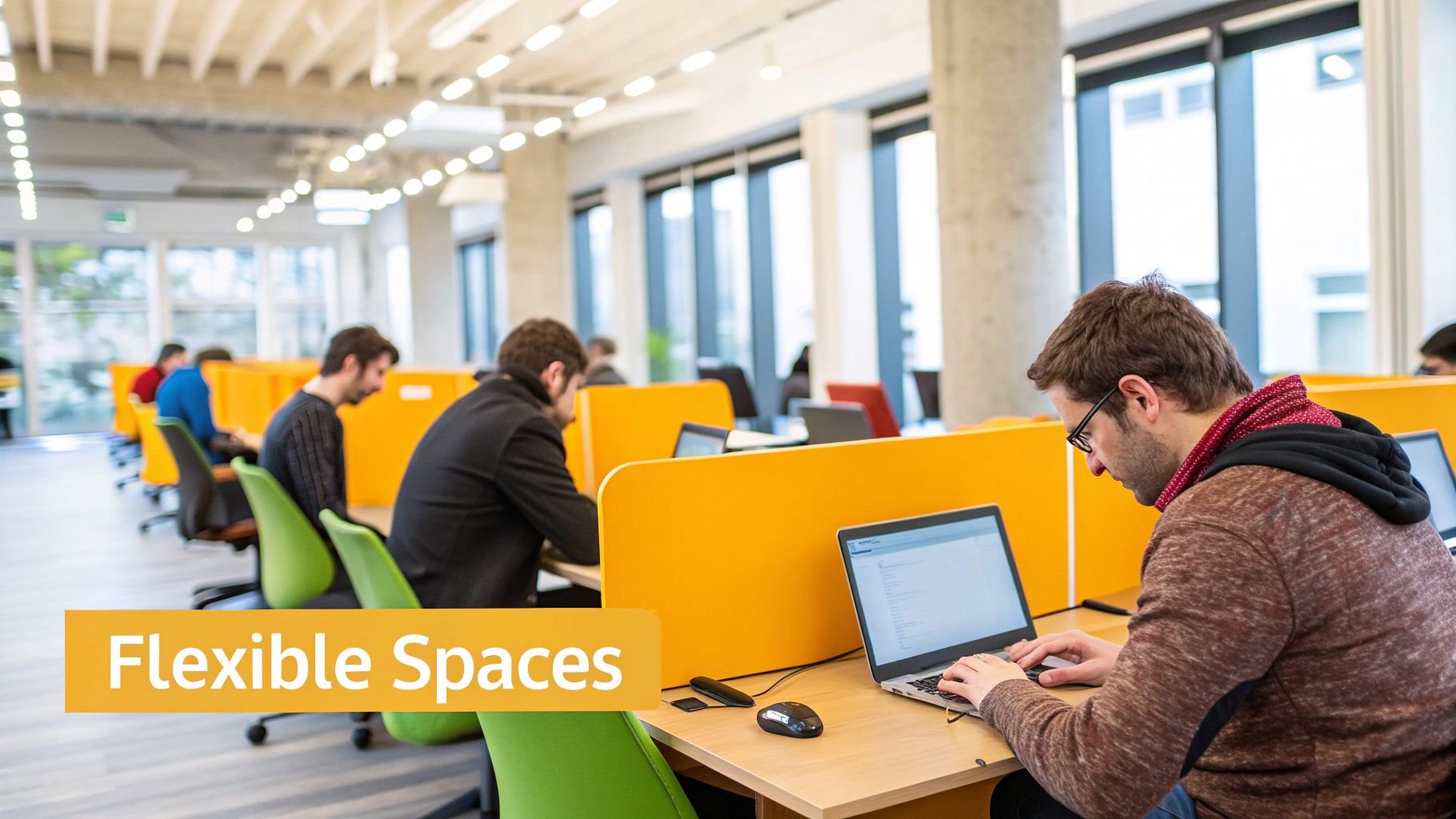
Alright, you've nailed down your budget. Now for the part that can feel a bit daunting: the legal paperwork. Renting commercial space in Morocco has its own set of rules, and being unprepared can stop you in your tracks. But here’s an insider tip: showing up with your documents perfectly organized is your secret weapon. It does more than just speed things up—it builds immediate credibility and puts you in a much stronger position to negotiate. Landlords will see you as a serious professional, not just another hopeful tenant.
The Paperwork Foundation
Before you even talk about lease terms, a landlord will want to see your business credentials. The absolute must-have document is your Registre de Commerce (RC), which is your official business registration certificate. This is non-negotiable; it's the first thing they'll ask for, and it proves your company legally exists in Morocco.
Depending on the space or if your business is new, a landlord might also ask for a caution bancaire. This isn't just a deposit; it's a formal bank guarantee that confirms you have the funds to cover your rent. It's a powerful signal of your financial stability. You'll also work closely with a notaire (notary). Unlike a typical lawyer, a Moroccan notary is a neutral official who verifies that the lease agreement is legal and fair for both parties, making it legally binding.
Decoding the Lease Agreement (Bail Commercial)
Now let's talk about the lease agreement itself, known as the bail commercial. This is where you can secure some real advantages for your business. While some parts are fixed, you might be surprised by how much is up for discussion. Your security deposit (caution) will almost always be two to three months’ rent, which is standard. But other clauses are where you can get creative.
Focus your energy on negotiating terms that give your business flexibility down the line. Here’s what to look for:
- Renewal Terms (
Droit au renouvellement): While Moroccan law is on your side for renewals, you can negotiate the finer points. Try to get a cap on rent increases for the renewal term. This one move can save you a significant amount of money in the future. - Minor Alterations: Standard contracts can be quite strict. Negotiate for the ability to make small cosmetic changes, like painting the walls or updating light fixtures, without having to get the landlord's approval every single time.
- Exit Clause (
Clause de résiliation anticipée): A standard 3-6-9 lease can feel very restrictive. Push for a break clause that lets you end the lease early, maybe with a six-month notice and an agreed-upon penalty. This is a game-changer for a growing company.
On the flip side, don't waste your breath on things that are rarely negotiable, like the taxe d'édilité (urban tax). This is almost always the tenant's responsibility by law. For example, a marketing agency we worked with on their hunt for a bureau a louer a casablanca put all their negotiating power into the exit clause. By presenting pristine financial documents, they convinced the landlord to let them exit in year two with a small penalty, giving their scaling business vital breathing room.
When you handle the legal side this way, you’re no longer just another person looking to rent; you’re a strategic partner they want to work with, securing terms that truly benefit your company.
Finding Properties That Others Miss
With your legal and financial groundwork laid, it’s time for the exciting part—the actual search. Most people get stuck scrolling through the same few popular websites, looking at the exact same properties as every other company. But the best opportunities for a bureau a louer a casablanca are rarely found on the front page of a search result. A smart approach is what will help you uncover real value.
Honestly, the best deals happen through people, not platforms. While websites are great for getting a feel for market prices, the most desirable spaces are often snapped up through personal connections before they’re ever listed publicly. Think about your network. Your accountant, lawyer, or even senior staff have connections.
We know a fintech startup that was struggling to find a good space in Maarif. The founder casually mentioned their search during a meeting with the French Chamber of Commerce and Industry in Morocco (CFCIM). A board member overheard, knew a landlord whose tenant was about to leave, and made a quick introduction. They signed a lease on a fantastic office two months before it would have ever hit the open market, completely avoiding a bidding war.
Making Every Property Viewing Count
Once you start touring properties, you need to think like a detective, not just a visitor. Anyone can notice the size of the rooms or the view. Your job is to spot the little things that tell the true story of the building and its management. This is about protecting your business from future headaches.
As you walk through a potential office, look for signs of quality or neglect. A well-run building just feels different. Are the common areas, like lobbies and elevators, kept clean? Do the security staff look professional and engaged? These details reflect the landlord’s standards. If you get a chance, try talking to another tenant. A simple, "How fast does building management handle repair requests?" can give you a priceless, honest answer.
The Checklist That Separates Great from Good
To make your visits truly productive, walk in with a specific game plan. Arm yourself with questions that go beyond the obvious "How much is the rent?" to evaluate the landlord’s professionalism and the building's reality.
- Maintenance & Repairs: "What’s your process for handling urgent repairs, like a broken AC unit or a plumbing issue?" A good landlord will have a clear, immediate plan, not a vague promise.
- Building Access: "What are the rules for after-hours and weekend access for our team and clients?" This is a critical detail for any business that doesn't stick to a rigid 9-to-5 schedule.
- Future-Proofing: "Are there any major renovations or construction projects planned for this building or the neighboring properties in the next two years?" This helps you avoid signing a lease for a space next to a construction site.
- Hidden Costs: "Could you show me a detailed breakdown of all the ‘charges communes’ from the past year?" This is the only way to confirm what you’re really paying on top of the base rent.
Asking these direct questions completely changes the dynamic. It signals that you are a serious, knowledgeable tenant. This positions you as a valuable partner for the landlord and helps you confidently choose the right space for your company's future.
Mastering Negotiations With Local Insight
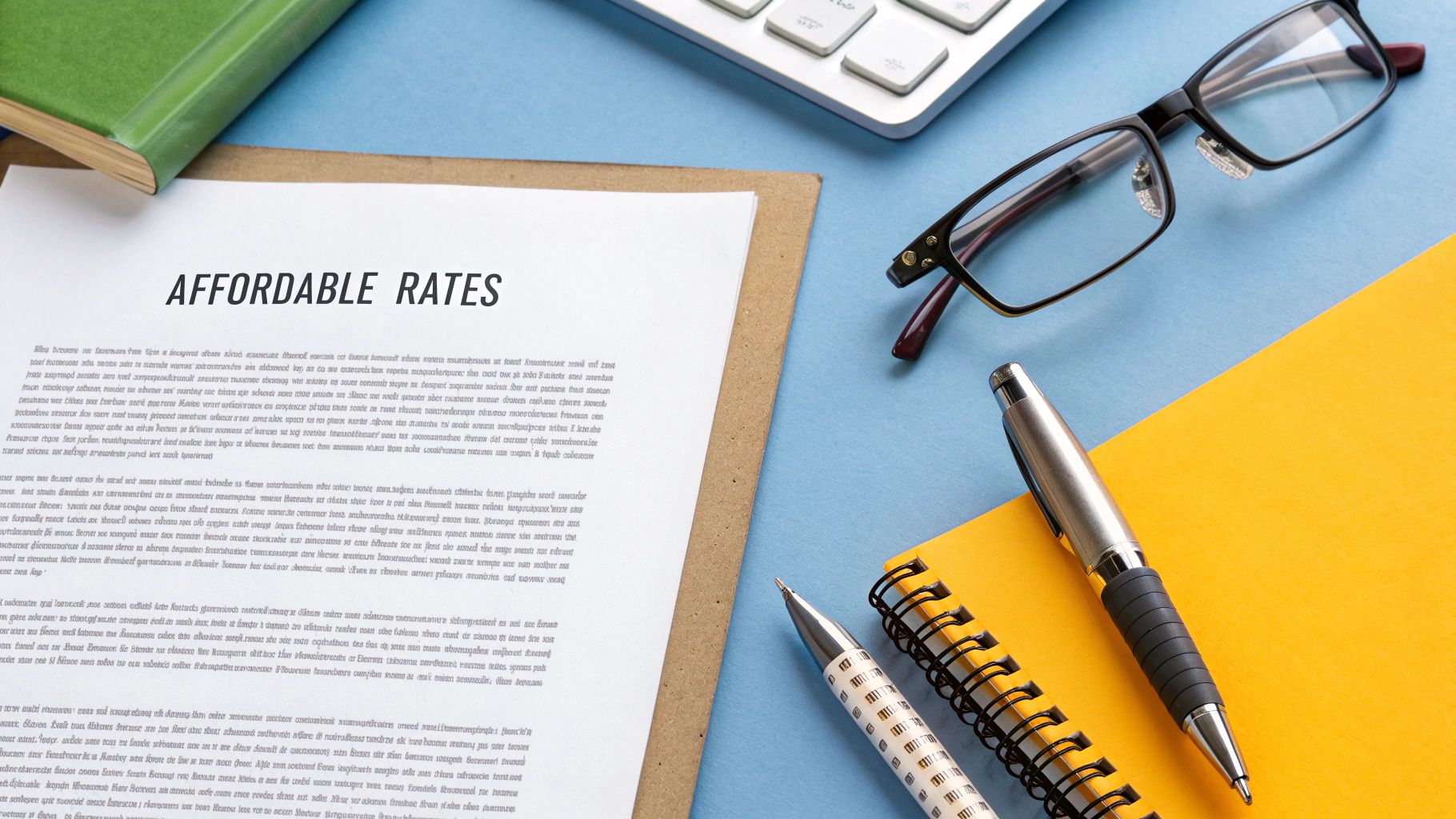
Once you've found a promising space, you enter the negotiation phase—a delicate dance where many businesses misstep. In Casablanca, this isn't a hard-nosed battle; it's a careful exercise in building a relationship. The aggressive tactics that might get results elsewhere can feel disrespectful here, often causing a landlord to walk away from the table. True success comes from understanding you aren't just renting an office, but starting a genuine partnership.
Your most valuable asset in this process is your company's stability. Landlords are looking for reliable, long-term tenants who will treat the property with respect. This is your most powerful point of leverage.
The Unwritten Rules of Bargaining
Before you even think about mentioning numbers, your priority should be building rapport. Don't be surprised if the first conversation revolves more around your business vision than the price per square meter. Come prepared with organized financials and clear long-term plans to demonstrate that you are a serious and stable partner.
A landlord who trusts you is much more likely to be flexible on terms. For example, instead of opening with a blunt demand for a 15% rent reduction, you could frame it collaboratively. A startup could explain, “We are projecting solid growth and plan to be tenants for many years. To help with our initial setup costs, would it be possible to have a grace period on the first month’s rent?” This approach feels like a partnership, not a confrontation, and has a much higher chance of success.
What’s Actually on the Table?
Knowing where you have room to maneuver is essential. While certain terms are often set in stone, many others are surprisingly flexible. When negotiating for your ideal bureau a louer a casablanca, it pays to focus your energy where it will count the most.
Negotiable Points:
- Rent Payment Schedule: Landlords may prefer quarterly or semi-annual payments, but you can often negotiate for monthly payments if it better suits your cash flow.
- Maintenance Responsibilities: Be sure to clarify who covers minor repairs. It's often possible to negotiate for the landlord to handle all structural and major system maintenance.
- Modification Rights: Secure the right to make cosmetic changes, like painting or installing branding, without needing to ask for permission for every small detail.
- Initial Rent-Free Period: A one or two-month grace period to allow for your fit-out is a common and reasonable request, particularly for longer lease agreements.
Generally Non-Negotiable:
- Security Deposit: The standard deposit of 2-3 months’ rent is rarely flexible.
- Urban Tax (
Taxe d'édilité): This is legally the tenant’s responsibility and isn't up for debate.
Think about this real-world contrast: one negotiation succeeded because the tenant demonstrated their long-term value, which resulted in them securing a rent-free month for their fit-out. Another failed because the prospective tenant immediately tried to lowball the price, which poisoned the relationship before it could even begin. Ultimately, the best deals in Casablanca are built on a foundation of mutual respect and understanding. Know your value as a tenant, present your case professionally, and be prepared to walk away if the partnership doesn't feel right. This clarity is vital before you move to the final step of securing your space.
Securing Your Space And Moving Forward
After shaking hands on a deal, it’s tempting to think you’ve crossed the finish line. But really, you’ve just begun the final and most important lap. This stage is where you turn your chosen office into a functioning workspace, and overlooking the details can lead to serious headaches and unexpected costs.
The Final Walk-Through And Lease Signing
Before you put pen to paper on the final bail commercial (commercial lease), you absolutely must conduct one last walk-through with the landlord or agent. This isn't a quick peek; it's a detailed inspection. Bring your list of agreed-upon repairs and a camera to confirm everything has been done as promised. Documenting any pre-existing scuffs or damage at this stage is crucial for protecting your security deposit later on.
The golden rule here is to get every single verbal promise in writing. Whether it’s a rent-free period for fit-outs or specific maintenance duties, it must be explicitly stated in the contract. A friendly handshake builds trust, but only a written clause is legally binding. Take your time and read every line before you sign.
Coordinating Your Move-In
Once the lease is signed, your focus should pivot to logistics. Your first call should be to the syndic (building management). They are your key contact for a smooth transition, so connect with them immediately to organize:
- Handover of keys and access cards
- Details on building security protocols
- Rules and schedules for moving in furniture or heavy equipment
Next up, sort out your essential services. You'll want to contact providers like Maroc Telecom, inwi, or Orange well in advance to get your internet installed. A delay here can bring your entire operation to a halt. The same logic applies to furniture deliveries; work with reliable suppliers who respect business deadlines. For more detailed advice on this phase, check out our complete guide on the process of renting an office in Casablanca.
Making It Official And Building Community
Moving the boxes is only half the job. Now you have to handle the official change of address, a critical administrative step. You need to formally notify several key Moroccan entities to ensure you remain compliant and operational:
- The
Registre de Commerce(RC) to update your official business registration. - Your bank, to prevent any interruptions to your financial accounts.
- The tax authorities (
Direction Générale des Impôts). - And, of course, all your clients, partners, and suppliers.
Lastly, here’s a tip that goes a long way in Casablanca’s business culture: introduce yourself. Take a few minutes to meet the managers in neighboring offices and get to know the building’s gardien (caretaker). Building these relationships from day one is a smart play. A good rapport with the gardien can help resolve small issues quickly, making your time in your new bureau a louer a casablanca much more pleasant.
Maximizing Your Office Investment Long-Term
Getting the keys to your new office is a fantastic feeling, but signing the lease is really just the starting line. Now, it's time to think beyond rent and utilities. Your new address in a prime district like Anfa or Maarif isn't just a place to work; it's a powerful tool for your business.
Imagine hosting client meetings that truly stand out or putting on exclusive industry events that establish you as a key player in Casablanca's business scene. This is how you turn a simple expense into a genuine driver of growth.
Protecting Your Asset and Your Relationship
Keeping your new space in great shape is about more than just appearances—it's about protecting your bottom line and your professional relationships. Simple, prompt maintenance shows respect for the property and goes a long way in building trust with your landlord. When you fix a small leak or a broken light right away, you're not just avoiding a bigger headache later; you're sending a clear message.
This kind of care is essential for a couple of reasons. It's the surest way to get your full security deposit (caution) back without any hassle when the lease is up. More importantly, it builds a strong foundation with your landlord. A property owner who views you as a responsible tenant will be much more accommodating when you need some flexibility down the road, like during renewal talks.
Staying Agile as Your Business Evolves
Businesses grow and change, and your office space needs to be able to adapt with you. Your best friend in any future negotiation is market knowledge. Are new commercial buildings opening up in your area? Are rental prices going up or down? Knowing the answers gives you real power when it's time to talk. You can get a solid overview of the Casablanca office space market to understand the current environment.
With this insight, you can approach your landlord with confidence to discuss changes to your lease. You might need to:
- Add an early exit clause in case you grow faster than planned.
- Get permission to sublet part of your space to another business.
- Start renewal talks early to lock in favorable terms.
These are the kinds of conversations that are much easier to have when you’ve built a positive relationship. It transforms the one-time search for a bureau a louer a casablanca into a real, ongoing business partnership.
Finding the right commercial space and managing it effectively takes deep local knowledge. At Rich Lion Properties, we're here to help with every part of the process, from the first viewing to managing your asset for the long haul. Our understanding of the Moroccan market is what makes the difference. Let us help you make your next move a complete success. Start your property journey with us today.

